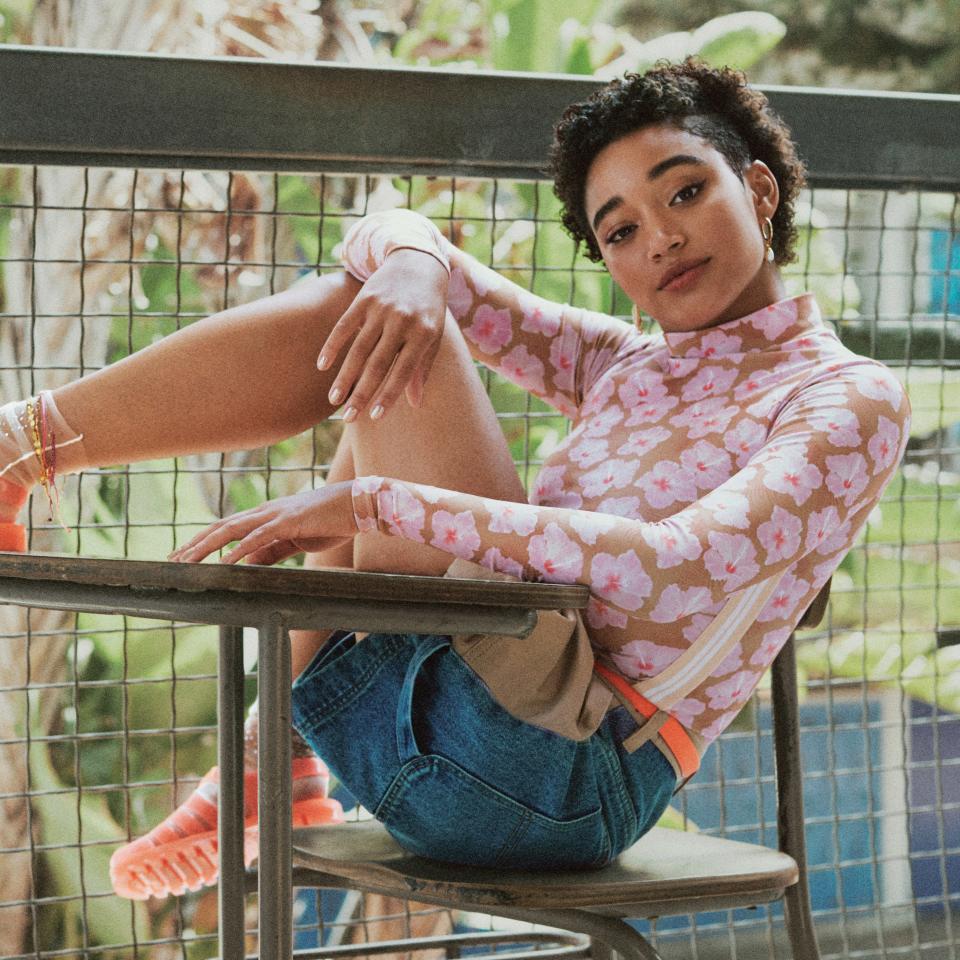Amandla Stenberg: 'I Want to Express Myself as Authentically as I Can.'
The set of The Hate U Give could have been a somber, hushed place. After all, the movie (and the book on which it’s based) centers on the effects of police violence after a local cop kills a black teen. But what Amandla Stenberg, 20, remembers is the music. She and an almost all-black cast and extras, many of them heavily involved in grassroots efforts to support Black Lives Matter, would rap between takes, breaking into Kendrick Lamar anthems like “Alright.” (Sample lyrics: “Do you hear me, do you feel me? We gon’ be alright.”) People were able to be their full “authentic selves” on set, Amandla says, and that time between takes “was a celebration of our community and the ability we have to use our collective voice to stand up.”
Amandla tells me this over the phone at the end of August, the same week that I have to attend orientation at a new school. Before I dialed, I took a deep breath to calm a rush of nerves. We’re not so different, I thought—we’re both readers and writers, both activists. But Amandla has become a voice in social movements like Black Lives Matter, even as she promotes movies and poses for beautiful photo shoots (like this one). Sure, I founded #1000BlackGirlBooks to call for more diverse stories and once met Angie Thomas, who wrote the novel The Hate U Give, at a book festival. But when it comes down to it, I’m just starting high school, and Amandla was in The Hunger Games.
Amandla puts me at ease in an instant. As she says, it’s a skill black girls learn from birth: “We have a unique voice because we grow up with the ability to empathize. We constantly have to do the work of placing ourselves in other people’s shoes.” That can be a burden, but Amandla calls it a “superpower of empathy.” She reminds me that “the way that we talk, the way that we love, the way that we express ourselves, how we do our hair”—what makes us different also makes us special.
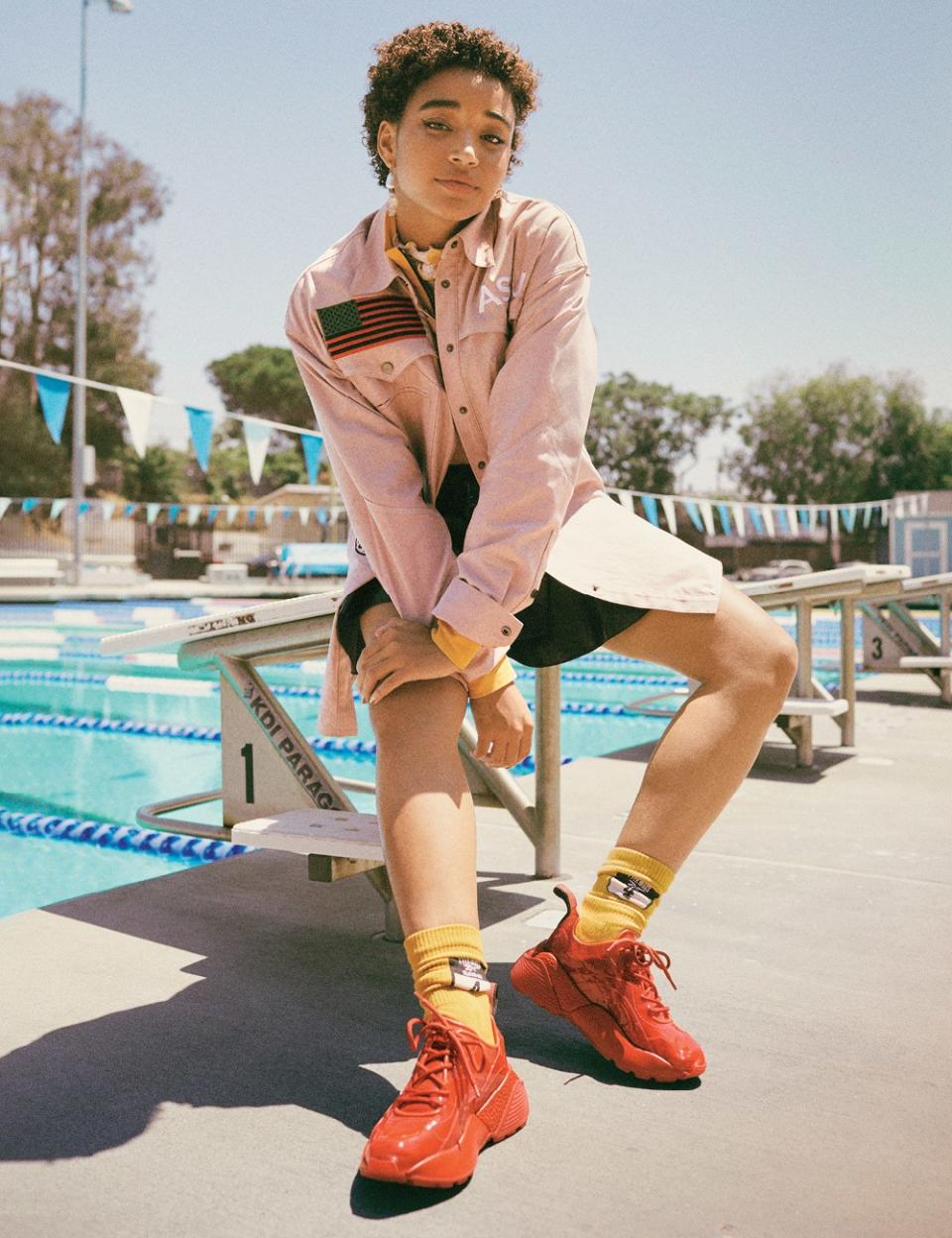
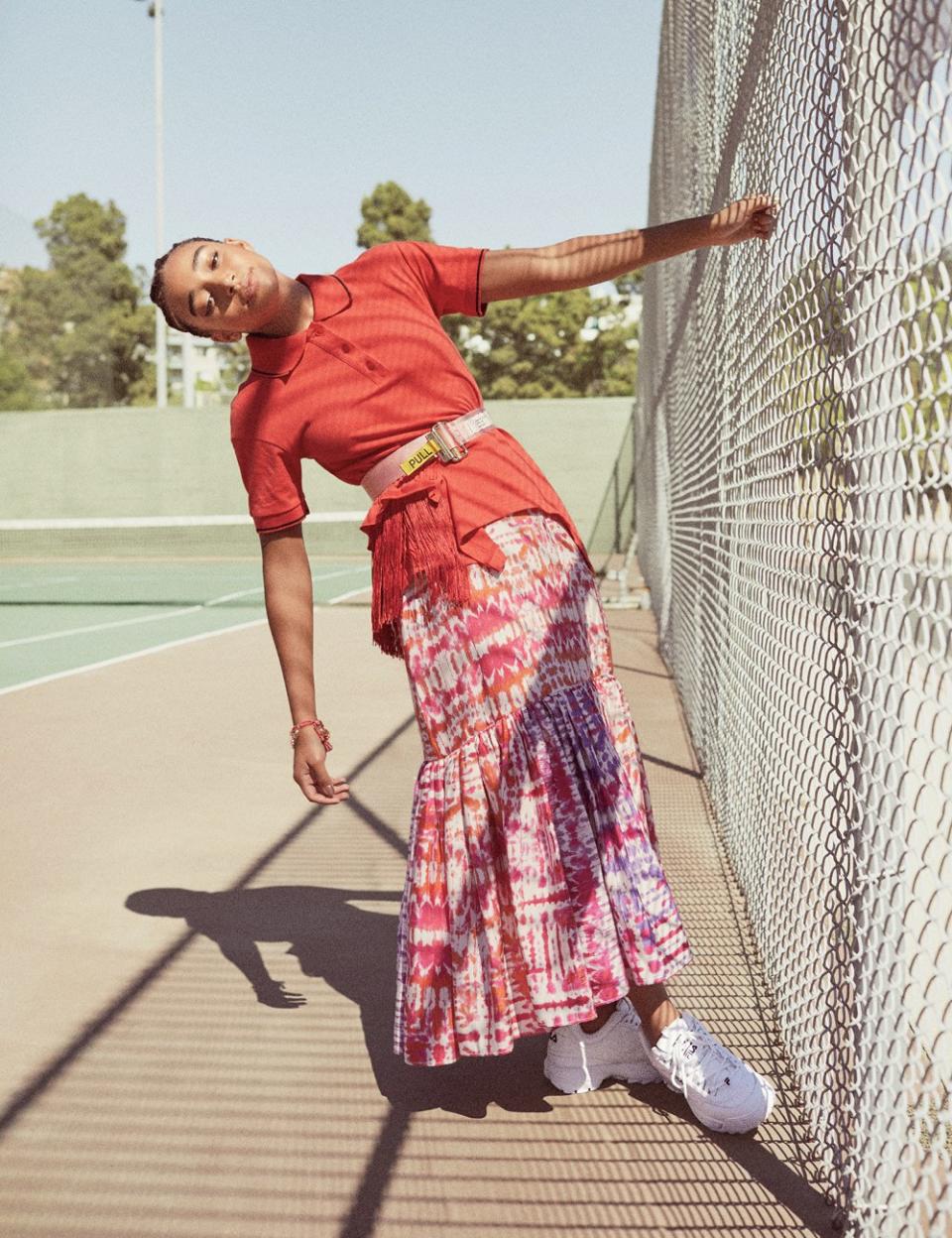
In The Hate U Give, Amandla plays Starr Carter, a 16-year-old who sees a police officer shoot and kill her childhood friend. Starr has to decide whether to serve as a formal witness, all while navigating her parallel lives, split between her mostly black neighborhood and her mostly white, wealthy prep school.
That divided universe reminds Amandla of her own childhood in Los Angeles, but while Starr feels alone in her experience at school, Amandla feels fortunate she had people who understood where she came from. “We became kind of like a band, like a little squad,” she tells me of her black friends. “We had to squad up in that environment in order to feel comfortable.” Those relationships meant she was never isolated in her experience or disempowered. “People did not understand where I lived, never went to my side of town. They didn’t really understand what it feels like to be black or how beautiful our black communities are,” she says.
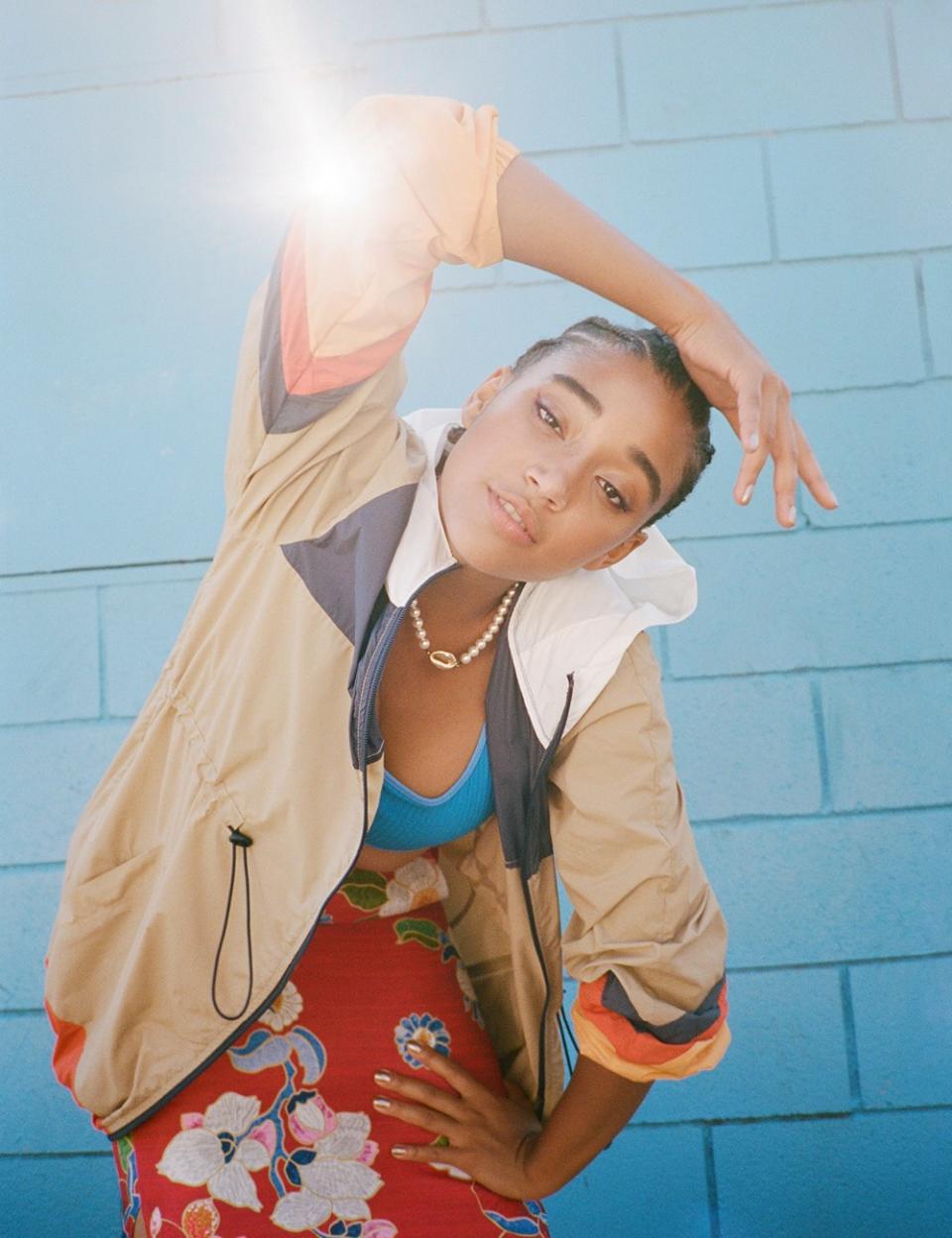
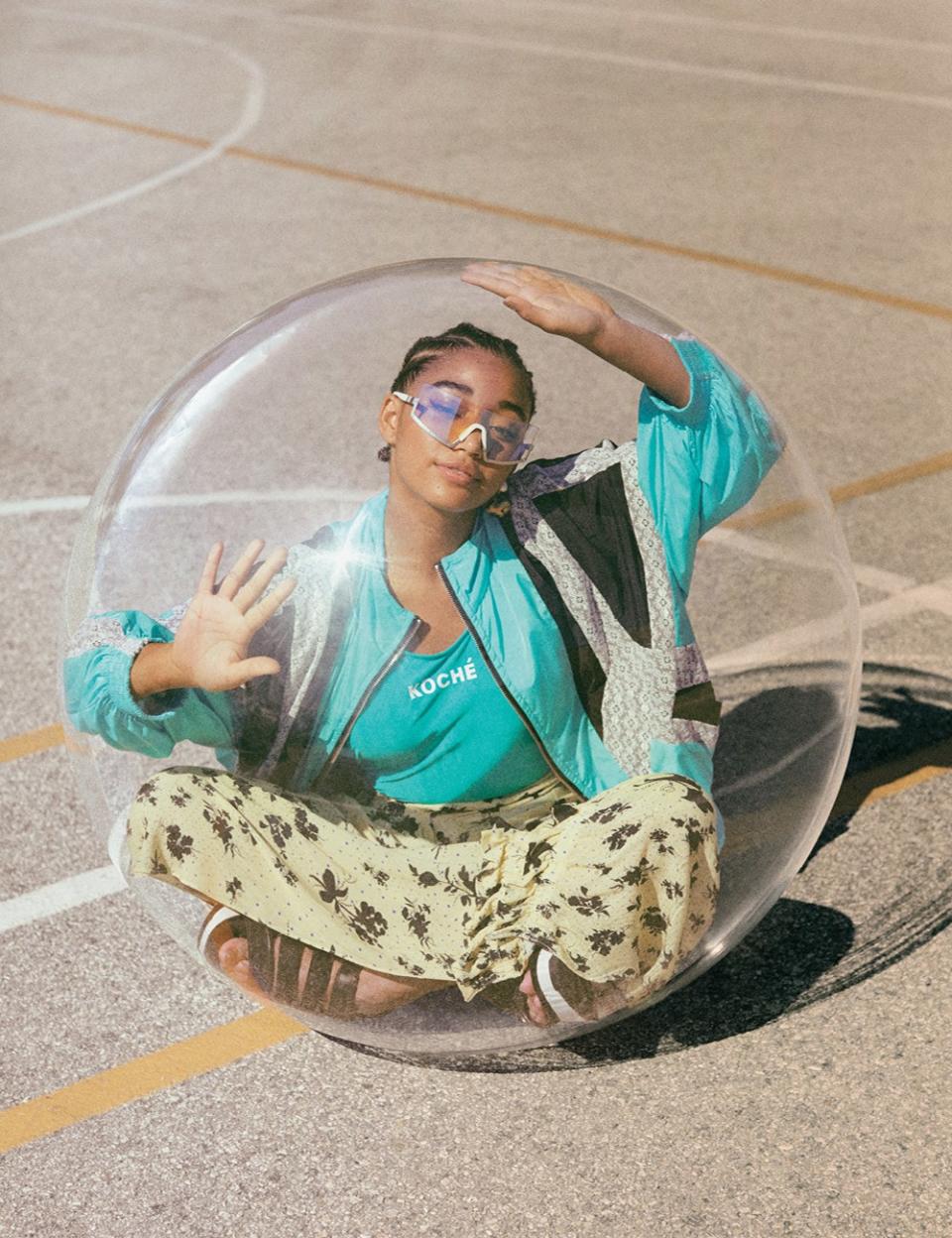
Today, Amandla isn’t afraid to tell them. After all, she is the same Amandla Stenberg who came out on Snapchat at 17 and made the video “Don’t Cash Crop My Cornrows,” which went viral. The video is pure Amandla—honest and personal but pointed about the issues, in this case about the harm that cultural appropriation can do. At the end, she asks, “What would America be like if we loved black people as much as we love black culture?”
The Hate U Give asks the same question. Amandla isn’t worried about the reviews or box office numbers; she cares about the lessons the story will teach audiences. “If we’ve done the job right, movies like The Hate U Give will be a tool in depicting that sort of cultural appropriation, why it’s insensitive, why it’s not cool.” What she wants most is for us, no matter who we are, to feel like we have the space we need to express ourselves.
Lately she’s made a bigger effort to follow her own advice. At red-carpet events she doesn’t stick to pastels. She wears burnt-orange suits and sleek dresses, her hair natural. “[Fashion] is just an inherent part of my job. It’s something that I love,” Amandla says. But when she started out—like Starr transitioning from hoodies to a fresh school uniform and Jordans—it seemed easier to be one person on the red carpet and a different person at home. That’s begun to change. “I am learning how to integrate,” she says. “I want to express myself as authentically as I can.”
Marley Dias, 13, is an activist and the founder of #1000BlackGirlBooks, a movement to collect and distribute books with black female protagonists.
